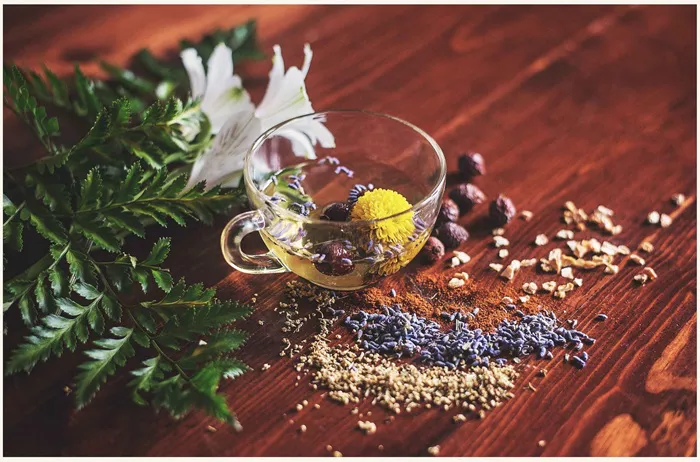Male fertility issues contribute to nearly 50% of all infertility cases, with sperm counts declining globally by over 50% in the past 40 years. While modern medicine offers various treatments, herbal remedies have been used for centuries to enhance male reproductive health. This comprehensive guide examines the most effective, science-backed herbs for improving sperm quality, testosterone levels, and overall fertility in men.
Understanding Male Fertility
Key Factors Affecting Male Fertility
Sperm Production
-
- Healthy spermatogenesis requires 74 days
- Affected by temperature, hormones, and nutrition
Sperm Quality Parameters
-
- Count: Minimum 15 million sperm/mL
- Motility: At least 40% moving sperm
- Morphology: Over 4% normal shape
Hormonal Balance
-
- Testosterone drives sperm production
- Estrogen balance is equally important
- Thyroid and adrenal function play roles
Top 10 Herbs for Male Fertility
Ashwagandha (Withania somnifera)
Fertility Benefits
- Increases sperm count by 167% in clinical studies
- Improves motility by 57%
- Boosts testosterone levels
Mechanism
- Reduces oxidative stress
- Lowers cortisol (stress hormone)
- Supports Leydig cell function
Recommended Form
- KSM-66 or Sensoril extract
- 600 mg daily
Maca Root (Lepidium meyenii)
Proven Effects
- Enhances semen volume
- Improves sperm motility
- Increases libido
Types Matter
- Black maca best for sperm count
- Red maca supports prostate health
Dosage
- 1500-3000 mg daily
- Gelatinized form for better digestion
Tribulus Terrestris
Traditional Use
- Ayurvedic medicine for male vitality
- Supports natural testosterone production
Research Findings
- Improves sperm concentration
- Enhances erectile function
- Increases LH production
Optimal Dosage
- 250-500 mg standardized extract
- 45-60% saponins
Fenugreek (Trigonella foenum-graecum)
Testosterone Support
- Contains furostanolic saponins
- Increases free testosterone
- Improves sexual function
Fertility Studies
- Shown to improve sperm count
- Enhances semen quality
Recommended Intake
- 500-600 mg extract daily
- Standardized to 50% saponins
Ginseng (Panax ginseng)
Benefits
- Improves sperm viability
- Enhances erectile function
- Reduces oxidative damage
Types
- Korean red ginseng most studied
- American ginseng also effective
Dosage
- 1000-2000 mg daily
- Cycle 8 weeks on, 2 weeks off
Shilajit
Ancient Remedy
- Ayurvedic mineral pitch
- Rich in fulvic acid and minerals
Fertility Effects
- Increases sperm count by 60%
- Improves testosterone levels
- Enhances mitochondrial function
Usage
- 250-500 mg purified daily
- Take with warm water
Saw Palmetto (Serenoa repens)
Prostate Health
- Reduces DHT (dihydrotestosterone)
- Improves urinary function
- May enhance semen parameters
Research
- Shows improved sperm motility
- Supports reproductive tract health
Dosage
- 320 mg standardized extract
Horny Goat Weed (Epimedium)
Active Compound
- Icariin (natural PDE5 inhibitor)
- Supports erectile function
Fertility Benefits
- Improves semen quality
- Enhances blood flow
- May increase sperm count
Recommended Form
- Standardized to 60% icariin
- 500-1000 mg daily
Mucuna Pruriens
Dopamine Support
- Natural source of L-Dopa
- Regulates prolactin levels
Fertility Effects
- Shown to improve sperm motility
- Increases testosterone
- Reduces oxidative stress
Dosage
- 500 mg standardized extract
Ginkgo Biloba
Circulation Benefits
- Improves microcirculation
- Enhances testicular blood flow
Sperm Protection
- Powerful antioxidant effects
- Reduces DNA fragmentation
Recommended Intake
- 120-240 mg extract daily
Herbal Combination Strategies
Best Synergistic Pairs
Ashwagandha + Maca
-
- Comprehensive fertility support
- Stress adaptation and energy
Tribulus + Fenugreek
-
- Testosterone optimization
- Sperm quality enhancement
Shilajit + Ginseng
-
- Energy and vitality
- Mitochondrial support
Advanced Fertility Stacks
Morning
- Ashwagandha
- Maca
- Zinc
Evening
- Shilajit
- Mucuna
- Magnesium
Lifestyle Factors That Enhance Herbal Effects
Dietary Recommendations
- Increase antioxidant-rich foods
- Ensure adequate zinc and selenium
- Maintain healthy fats for hormone production
Exercise Guidelines
- Moderate resistance training
- Avoid excessive heat exposure
- Manage workout recovery
Environmental Protection
- Reduce EMF exposure
- Avoid endocrine disruptors
- Wear loose-fitting underwear
Potential Side Effects
Common Considerations
- Tribulus may cause mild stomach upset
- Ginseng can lower blood pressure
- Saw palmetto might reduce DHT too much
Who Should Be Cautious
- Those on blood pressure medications
- Men with hormone-sensitive conditions
- Anyone with bleeding disorders
Preparation Methods
Teas and Decoctions
- Ginseng and maca work well as teas
- Simmer roots for 10-15 minutes
Powder Forms
- Ashwagandha and mucuna mix well
- Combine with warm milk or smoothies
Standardized Extracts
- Most convenient option
- Precise dosing
Timeline for Expected Results
First Month
- Improved libido
- Better energy levels
- Enhanced mood
3 Months
- Noticeable semen improvements
- Increased morning erections
- Better workout recovery
6 Months
- Optimal sperm parameters
- Maximum fertility benefits
When to Seek Medical Help
Warning Signs
- No improvement after 6 months
- Pain or swelling in testicles
- Complete absence of sperm
Medical Tests to Consider
- Semen analysis
- Hormone panel
- Genetic testing
Conclusion
These evidence-based herbs offer powerful natural solutions for enhancing male fertility. When used correctly and consistently, they can significantly improve sperm parameters, hormonal balance, and overall reproductive health.
Remember that fertility enhancement requires patience – spermatogenesis takes nearly 3 months, so herbal protocols need adequate time to show full effects. Combining these herbs with healthy lifestyle choices creates the optimal environment for improving male fertility naturally.
Related topics:
What is the Best Thing to Use for Vaginal Dryness?
Does Progesterone Help With Vaginal Dryness?
Does Coconut Oil Help With Vaginal Dryness?


